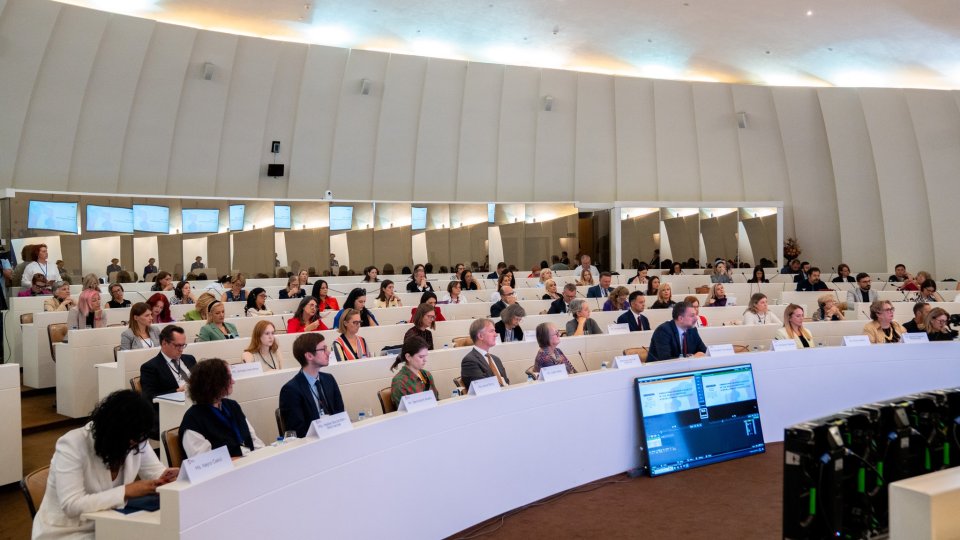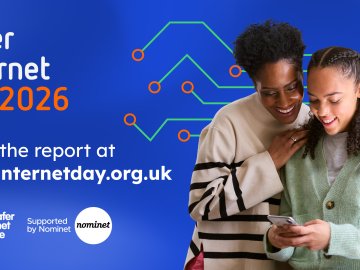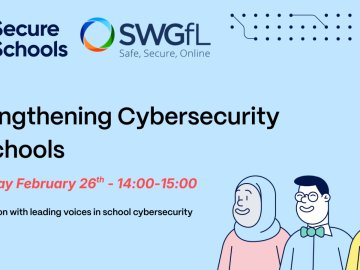This September, the Gender Equality Forum took place in Sarajevo under the auspices of the Berlin Process. The Forum gathered governments, NGOs, civil society, and international partners to explore how gender equality can promote stability, prosperity, and inclusion across the Western Balkans.
As part of the Forum, SWGfL’s Head of International Development Boris Radanović spoke at the panel “Securing Digital Spaces: Combating Gender-Based Online Harassment in the Western Balkans.” The panel addressed how the region can protect women, especially those in public roles such as activists, politicians and journalists, from online abuse, non-consensual image sharing, and harassment.
Tackling Intimate Image Abuse
Boris Radanović presented StopNCII.org, SWGfL’s platform which enables individuals to generate hashes of intimate images shared without consent so that they can be blocked on participating platforms. He shared the platform with NGOs and governmental actors from the WB6, positioning it as a practical, survivor-centred tool that complements legal and institutional strategies.
“The discussions in Sarajevo showed just how urgent and complex this issue is for the Western Balkans. StopNCII.org demonstrates that practical, survivor-led solutions exist, and that by working together regionally and globally, we can make digital spaces safer for women and girls. Our hope is that this conversation strengthens momentum towards coordinated action, because online harassment is not only a gender issue, it is a democratic one.”
— Boris Radanović, Head of International Development, SWGfL
The Forum also provided vivid context on why these efforts are so vital. Opening remarks from keynote speakers underscored that while legal frameworks and quotas have advanced in many countries, cultural and institutional barriers remain deeply rooted.
Baroness Harriet Harman, UK’s Special Envoy for Women and Girls however specifically mentioned the work of StopNCII.org in protecting adults against NCII and the global move to adopt it’s solutions.
“I am proud that the UK is supporting victims of non-consensual intimate image abuse in Bosnia and Herzegovina, by providing training to civil society here on how to access a pioneering global platform, called STOP NCII.org. This is a platform that detects and removes non-consensual images from the internet and empowers women to do that. It is at the frontline of technology.”
Female Representation
Other highlights from the Forum included a recognition that despite quotas, such as electoral lists requiring minimum percentages of women, voters often still elect far fewer women. This points to the need to build public trust in women leaders, and for institutions to open up space for female representation in a meaningful way. There was also emphasis from the representative of the German Ministry for Economic Cooperation and Development that gender equality is central not only to social justice but also to economic outcomes. It was noted that the Western Balkans lose an estimated 18 percent of GDP annually because women are not equally represented in the workforce. The discussions further highlighted the call to strengthen cooperation between governments, civil society, and institutional mechanisms for gender equality, as well as efforts to combat gender-based violence online through global partnerships.
The conclusions of the Forum fed into ministerial meetings within the Berlin Process, reinforcing the shared regional commitment to building more inclusive, just, and stable societies.






